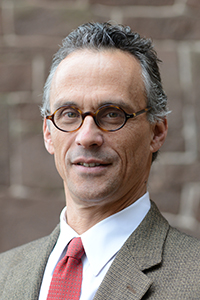President Roth Makes the Case for a Broad, Contextual Education

Writing for Inside Sources, President Michael Roth made the case for a broad, contextual education, in a counterpoint to an essay by Eastern Kentucky University President Michael Benson, arguing for education that provides “a transferable set of skills.”
Roth writes that the types of contentious debates currently raging over the value of a college education are as old as America itself, something he explores in-depth in his book, Beyond the University: Why Liberal Education Matters. He writes:
Several of the Founding Fathers saw education as the road to independence and liberty. A broad commitment to inquiry was part of their dedication to freedom. But critics of education also have a long tradition. From Benjamin Franklin in the 18th century to today’s Internet pundits, they have attacked its irrelevance and elitism — often calling for more vocational instruction.
Yet Franklin was also dismissive of anti-intellectual displays, and believed that earlier and earlier specialization would make Americans “less capable citizens and less able to adjust to changes in the world of work.”
Roth writes:
Citizens able to see through political or bureaucratic doubletalk are also workers who can defend their rights in the face of the rich and powerful. Education protects against mindless tyranny and haughty privilege. Liberal learning in the American tradition isn’t only training; it’s an invitation to think for oneself. Broadly educated citizens aren’t just collections of skills – they are whole people.
It’s no wonder that in a society characterized by radical income inequality, anxiety about getting that first job will lead many to aim for the immediate needs of the marketplace right now. The high cost of college and the ruinous debt that many take on only add to this anxiety. In this context, some assert that education should just focus on practical skill building.
But when the needs of the market change, as they surely will, the folks with that narrow training will be out of luck. Their bosses, those responsible for defining market trends, will be just fine because they were probably never confined to an ultra-specialized way of doing things. Beware of critics of education who cloak their desire to protect privilege (and inequality) in the garb of educational reform.

